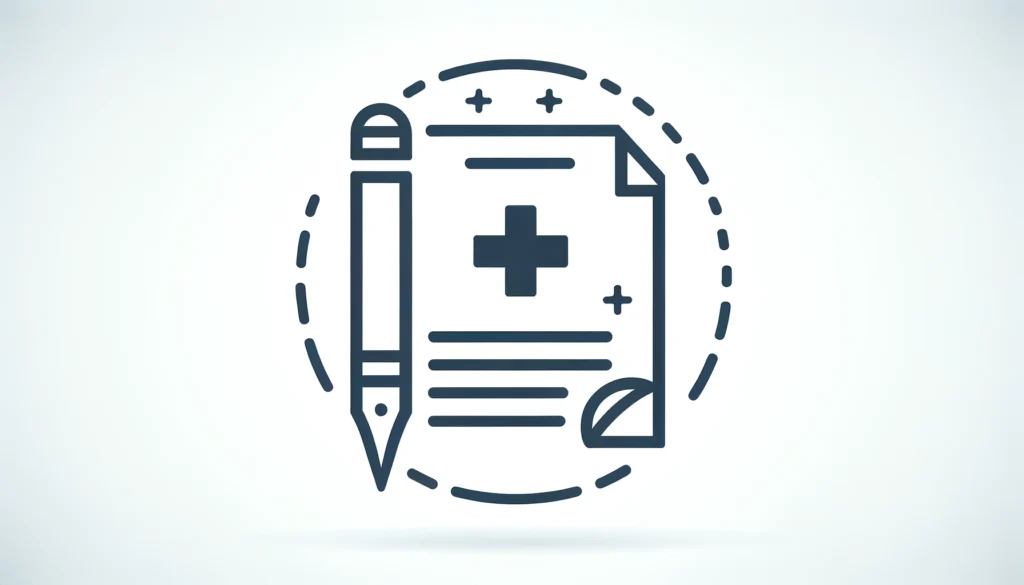

Medical writing is a critical component of the pharmaceutical industry, serving as the bridge between complex scientific research and clear, comprehensive communication. It involves the creation of various types of documents that detail clinical trial results, regulatory submissions, and educational materials for healthcare professionals and the public. Medical writers play a pivotal role in ensuring that the data is presented accurately and effectively, facilitating the development and approval of new medications. This article delves into the importance of medical writing, the different types of services it encompasses, and its significant impact on pharmaceutical companies.
Types of Medical Writing Services
Medical writing in pharmaceutical companies encompasses a variety of services designed to ensure accurate and effective communication of scientific data. These services are crucial for regulatory approval, clinical research, and educational outreach.
Regulatory Writing
Regulatory writing involves the creation of documents required for regulatory submissions. These include clinical study reports, investigator brochures, and applications for new drugs or medical devices. Clear and precise regulatory documents are essential for the approval and monitoring of new pharmaceutical products. Regulatory writers ensure that these documents meet the stringent standards set by regulatory agencies.
Clinical Trial Documentation
Clinical trial documentation includes writing protocols, informed consent forms, and clinical study reports. These documents must comply with regulatory standards and provide clear instructions and information to both clinical investigators and trial participants. Effective clinical trial documentation ensures the smooth execution of trials and accurate reporting of results. Clinical trial protocols are a key part of this process, detailing the methodology and procedures for conducting trials.
Educational and Marketing Materials
Medical writers also produce marketing and educational materials to communicate the benefits and safety of pharmaceutical products to healthcare professionals and the public. This includes creating product monographs, patient education leaflets, and scientific journal manuscripts. High-quality marketing and educational content can enhance a company’s reputation and support the successful launch of new therapies. Medical communication agencies often assist in producing these materials.
The Role of Medical Writers in Pharmaceutical Companies
Medical writers in pharmaceutical companies play a multifaceted role, requiring a blend of scientific knowledge, writing skills, and an understanding of regulatory requirements. They are responsible for translating complex scientific data into clear, accurate, and compliant documents that are essential for the development and approval of new drugs.
Skills and Qualifications Required
Medical writers typically have advanced degrees in life sciences, pharmacy, or medicine. They must possess excellent writing and editing skills, a keen attention to detail, and the ability to understand and interpret scientific data. Familiarity with regulatory guidelines and the ability to meet stringent deadlines are also crucial. Experience in technical writing is often beneficial.
Collaboration with Other Departments
Medical writers work closely with various departments within pharmaceutical companies, including research and development, clinical operations, regulatory affairs, and marketing. They gather information from scientists, clinicians, and regulatory specialists to produce comprehensive and accurate documents. This collaborative approach ensures that all relevant data is included and that the documents meet regulatory and scientific standards. For a more comprehensive understanding of medical writing, refer to this essential guide that delves deeper into the subject.
Challenges Faced in Medical Writing
Medical writing in the pharmaceutical industry comes with its own set of challenges. These obstacles can impact the efficiency and quality of the documents produced, ultimately influencing the success of pharmaceutical products.
Regulatory Compliance
Ensuring regulatory compliance is a significant challenge for medical writers. They must stay up-to-date with ever-evolving regulations and guidelines set forth by health authorities like the FDA, EMA, and other regulatory agencies worldwide. Non-compliance can result in delays, rejections, or even legal issues, making meticulous adherence to regulations crucial.
Data Accuracy and Integrity
Medical writers must accurately interpret and present complex scientific data. This requires a deep understanding of the research, as well as the ability to cross-check and verify information. Any errors or misrepresentations can lead to serious consequences, including compromised patient safety and loss of credibility for the pharmaceutical company. Ensuring the integrity of scientific documents is paramount.
Meeting Deadlines and Managing Workload
The pharmaceutical industry operates under tight deadlines, with multiple projects often running simultaneously. Medical writers must manage their workload effectively to meet these deadlines without compromising the quality of their work. This requires strong organizational skills and the ability to prioritize tasks efficiently. For further details on regulatory compliance and data accuracy in medical writing, visit regulatory guidance by the FDA.
The Future of Medical Writing in the Pharmaceutical Industry

The field of medical writing is continually evolving, driven by advancements in technology and changes in regulatory landscapes. Understanding these trends can help pharmaceutical companies and medical writers stay ahead of the curve.
Emerging Trends and Technologies
New technologies such as artificial intelligence (AI) and machine learning are beginning to influence medical writing. AI can assist in data analysis, document drafting, and even in predicting regulatory changes, thereby increasing efficiency and accuracy. The adoption of electronic health records (EHRs) and digital data capture tools is also transforming how data is collected and reported.
The Impact of AI and Digital Tools
AI tools are revolutionizing the way medical writers work by automating repetitive tasks and enhancing data analysis. This allows writers to focus on more complex aspects of their work, such as interpreting data and ensuring regulatory compliance. Digital tools also facilitate real-time collaboration, making it easier for teams to work together regardless of geographical locations. These advancements are particularly beneficial for medical device companies and biotech companies.
Predictions for the Future
As the pharmaceutical industry continues to grow, the demand for skilled medical writers is expected to rise. The integration of digital tools and AI will likely become more prevalent, making the writing process faster and more efficient. Additionally, there will be an increased focus on patient-centric documentation, ensuring that information is accessible and understandable to non-experts. Explore more about the impact of digital tools and AI in medical writing in this article on AI in medical writing.
Medical writers will also see an increase in producing scientific publications and working closely with the healthcare industry to ensure effective communication of new research findings.
FAQ
Medical writing in pharma involves creating scientific documentation that communicates research results, product use, and other medical information clearly and accurately. This includes regulatory documents required by health authorities, clinical trial documentation, and educational materials for healthcare professionals and the public. Medical writers ensure these documents meet regulatory standards and effectively convey complex scientific data.
To break into medical writing, a strong foundation in life sciences or a related field is essential. Many medical writers hold advanced degrees in science, medicine, or pharmacy. Gaining experience through internships, training programs, or entry-level positions can be beneficial. Developing skills in technical writing, understanding regulatory requirements, and building a portfolio of writing samples are also important steps.
Regulatory writing is a subset of medical writing focused specifically on documents required for regulatory approval by health authorities such as the FDA. This includes clinical study reports, regulatory submissions, and safety update reports. Regulatory writers ensure that these documents meet stringent standards. In contrast, medical writing encompasses a broader range of documents, including educational materials, marketing content, and scientific publications. Both regulatory writers and medical writers require a high level of scientific expertise and attention to detail.
Yes, medical writing can be a profitable career. The demand for skilled medical writers is high due to the growing pharmaceutical and biotech industries. Compensation varies based on experience, education, and the complexity of the work. Freelance medical writers can also earn substantial income by working with multiple clients. The role offers the opportunity to work on diverse projects, which can further enhance earning potential.
Medical writers create a wide range of documents such as clinical study reports, investigator brochures, informed consent forms, regulatory submissions (e.g., INDs and NDAs), marketing materials, educational content, and manuscripts for scientific publications. They work on documents that support regulatory compliance, clinical research, and product marketing, ensuring that all information is accurate, clear, and adheres to regulatory standards.
Looking for Expertise in Medical Writing?
Unlock the potential of high-quality medical writing with our team of experts at Epitech Research. We are dedicated to helping you communicate complex medical information clearly and accurately, ensuring that your documents meet the highest standards of precision and compliance. From clinical trial reports to regulatory submissions, our expertise ensures your success.
